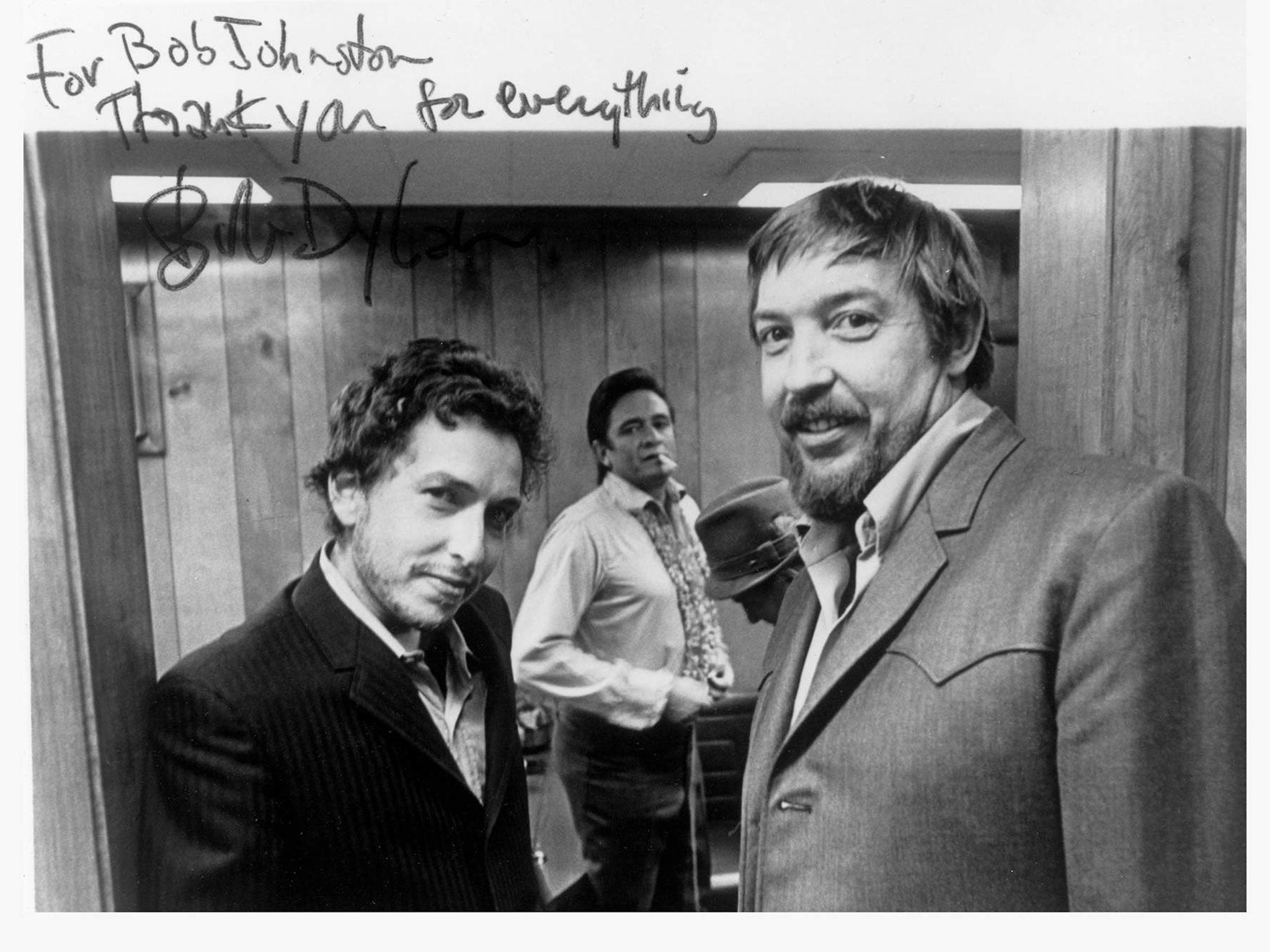Bob Johnston: Johnny Cash and Bob Dylan's legendary producer dies at the age of 83
Johnston produced Highway 61 Revisited and Blonde on Blonde

Your support helps us to tell the story
From reproductive rights to climate change to Big Tech, The Independent is on the ground when the story is developing. Whether it's investigating the financials of Elon Musk's pro-Trump PAC or producing our latest documentary, 'The A Word', which shines a light on the American women fighting for reproductive rights, we know how important it is to parse out the facts from the messaging.
At such a critical moment in US history, we need reporters on the ground. Your donation allows us to keep sending journalists to speak to both sides of the story.
The Independent is trusted by Americans across the entire political spectrum. And unlike many other quality news outlets, we choose not to lock Americans out of our reporting and analysis with paywalls. We believe quality journalism should be available to everyone, paid for by those who can afford it.
Your support makes all the difference.The producer Bob Johnston, one of the “quieter legends” of the music business who worked on some of the greatest albums of all time, has died at the age of 83.
Highway 61 Revisited and Blonde on Blonde were among several LPs that Johnston produced for Bob Dylan. He also worked on Johnny Cash’s At Folsom Prison, Sounds of Silence by Simon & Garfunkel, and Songs of Love and Hate by Leonard Cohen.
Johnston also wrote songs for Elvis Presley and Bill Haley and his Comets, but it was his work with Dylan – who relied on Johnston to record his legendary transition from acoustic to electric guitar in the mid-1960s – for which he is likely to be best remembered.
Dylan paid tribute to Johnston in his autobiography, writing: “You could see it in his face and he shared that fire, that spirit. Columbia’s leading folk and country producer, he was born one hundred years too late. He should have been wearing a wide cape, a plumed hat, and riding with his sword held high.”
Cohen recalled how Johnston “created an atmosphere in the studio that really invited you to do your best, stretch out, do another take, an atmosphere that was free from judgement, free from criticism, full of invitation, full of affirmation”. He added that Johnston would also “move while you were singing – he’d dance for you”.
Johnston was noted for his hands-off approach, and speaking in 2011 he stressed that he had not told artists which songs they should release. “How could I? ‘I don’t like that song, Paul. Let’s get rid of ‘Parsley Sage’ and do another one. It’s too fuckin’ slow.’ Fuck that!” he told Goldmine magazine.
“I told Dylan and Cohen and Cash and Simon and everybody else: ‘You don’t have a contract with me. I got a contract with CBS. You can tell me to hit the fuckin’ door. You don’t have to call CBS. Just tell me to get the fuck out of here, and I’ll be gone.’”
The artists largely returned the compliment in not interfering with his work.
“None of ’em ever messed with the sound, except Paul Simon, a little bit. But everybody else, it was what I did. I was better than everybody else,” Johnston said.
“Blonde on Blonde was voted the best album in rock history … I sold a billion fuckin’ albums worldwide.”
He also talked about how he managed to persuade the authorities to allow Cash to record in Folsom Prison, an idea as controversial then as it would be now.
“I picked up the phone and called Folsom … got through to the warden, told him: ‘Warden, my name’s Bob Johnston. Johnny Cash is gonna come up there, do an album, and give a fuckin’ concert.’ He said: ‘My God, when?’ I said: ‘Talk to him [Cash].’”
The native Texan had died peacefully after spending about a week in a hospice in Nashville, Tennessee, a friend told The Austin Chronicle.
Louis Black, editor of the newspaper, paid tribute to him as “one of the quieter legends in the music business” who had always been “reluctant to blow his own horn” but was armed with “technical brilliances”.
Join our commenting forum
Join thought-provoking conversations, follow other Independent readers and see their replies
Comments